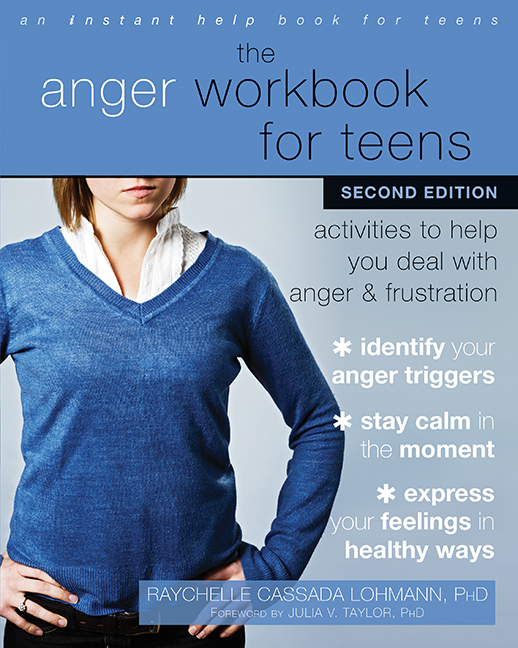By Raychelle Cassada Lohmann, PhD, LPC, author of The Anger Workbook for Teens, Second Edition
Have you ever wondered why some things get worse before they get better? Take, for example, deciding that you’re going to work on a potentially problematic behavior, like anger, and just when you commit to change, you notice that every little thing seems to make you mad. Although this isn’t a steadfast rule, it does happen to a lot of people a lot of the time.
I was reminded of how common this experience was upon the release of my first book, The Anger Workbook for Teens, in 2009. As a novice author, I would regularly go online and sift through the reader comments. I eagerly wanted to see what they thought about the new book. Then one day, I had a comment from a young reader who used a few expletives to tell me that my book was pretty much garbage and didn’t work. In fact, according to him, it made him angrier, so he ripped up some of the pages. Ouch! His words stung, but the more I thought of what he said about getting more upset, the more I realized that he was right.
In time, the book had many favorable comments and even gained popularity in other countries, but I couldn’t seem to shake that young reader’s comment. To top it off, I had a few additional comments from readers telling me that they got angrier when they started working in the book. I found myself asking, “What can I do differently?” Then it dawned on me. I should have put a warning in the book and let my readers know that sometimes their anger may indeed get worse before it gets better.
As with many things in life, when we decide that we want to work on self-improvement, we undergo a series of changes. The first change involves admitting to ourselves that we have a problem. We often don’t like to acknowledge our flaws, and we sure don’t like changing them. Sometimes our behaviors can take a toll on our lives and leave us facing the fact that that we must change. To do so, we must take a good, hard look at who we are and what we need to do differently. This reflective experience is also known as self-awareness.
Self-awareness requires us to place ourselves under a microscope and scrutinize each little detail. As one could imagine, this is an experience that can set off a tidal wave of emotions, including anger and pain. Some aren’t ready to make a change and will run from the reflection. Sometimes it’s easier to live in denial than to accept our issues. I can’t even begin to count the times I have heard an angry youth tell me that they don’t have a problem, but everyone else does.
Others, however, will uncover their eyes and truly see themselves, imperfections and all. Once we are aware of the problem, we can move to the next leg of the journey: change. Change is the working stage of the process. It involves setting goals and making plans to accomplish them. By no means is change easy, but it shows our commitment to self-improvement. When all is said and done, we can take what we learned about ourselves (self-awareness), along with the changes we’ve made, and begin to transform our lives in a good way from the inside out.
In conclusion, I recently released the second edition of The Anger Workbook for Teens, and this time, I included a warning. My readers taught me a valuable lesson—sometimes things get worse before they get better.
Raychelle Cassada Lohmann, PhD, LPC, is a national board-certified and licensed counselor. Raychelle has worked as a clinician and school counselor at middle and high school levels, and has helped hundreds of teens deal with feelings of frustration and anger. She has participated in and conducted extensive research on anger and aggression, and specializes in individual and group counseling for anger management. She is author of The Anger Workbook for Teens, and coauthor of The Bullying Workbook for Teens and The Sexual Trauma Workbook for Teen Girls. She also writes the Psychology Today blog Teen Angst, and is a regular parenting contributor for U.S. News & World Report.



 2024 Peace Playbook: 3 Tactics to Avoid Clashes with Your Partner
2024 Peace Playbook: 3 Tactics to Avoid Clashes with Your Partner